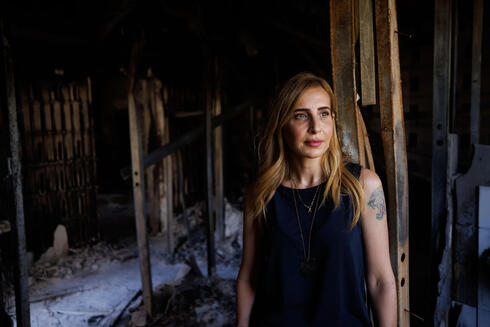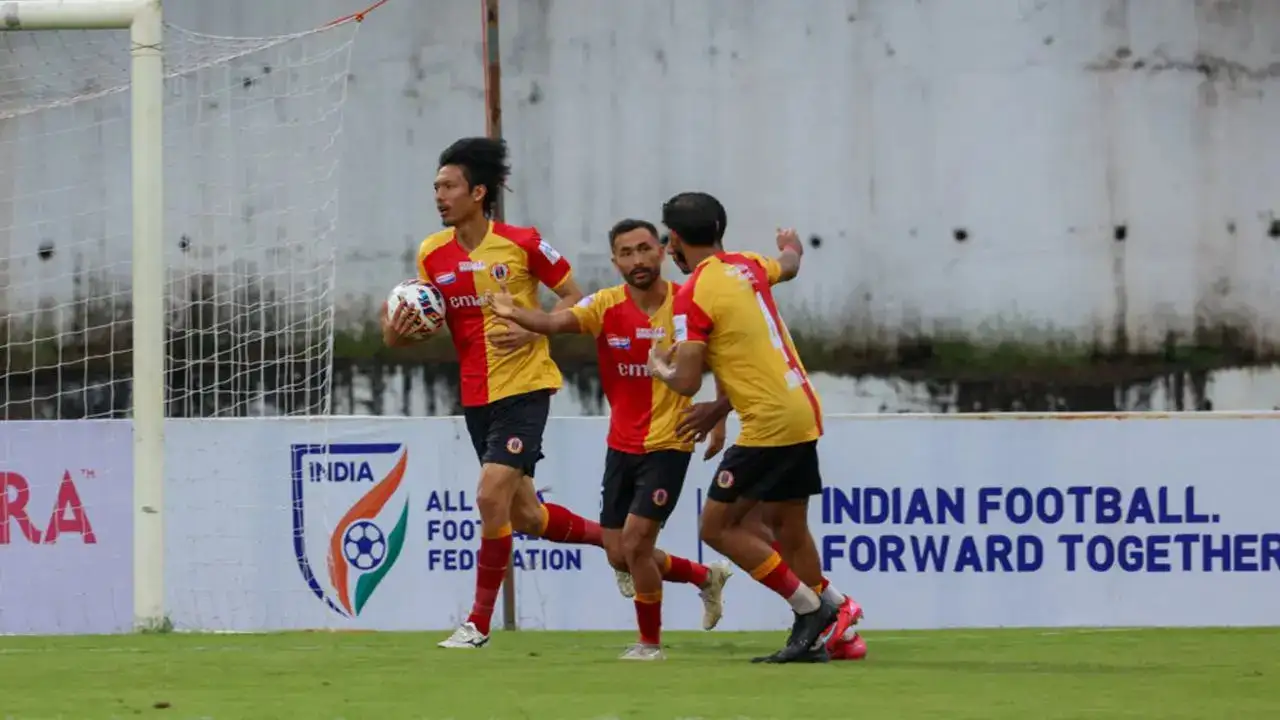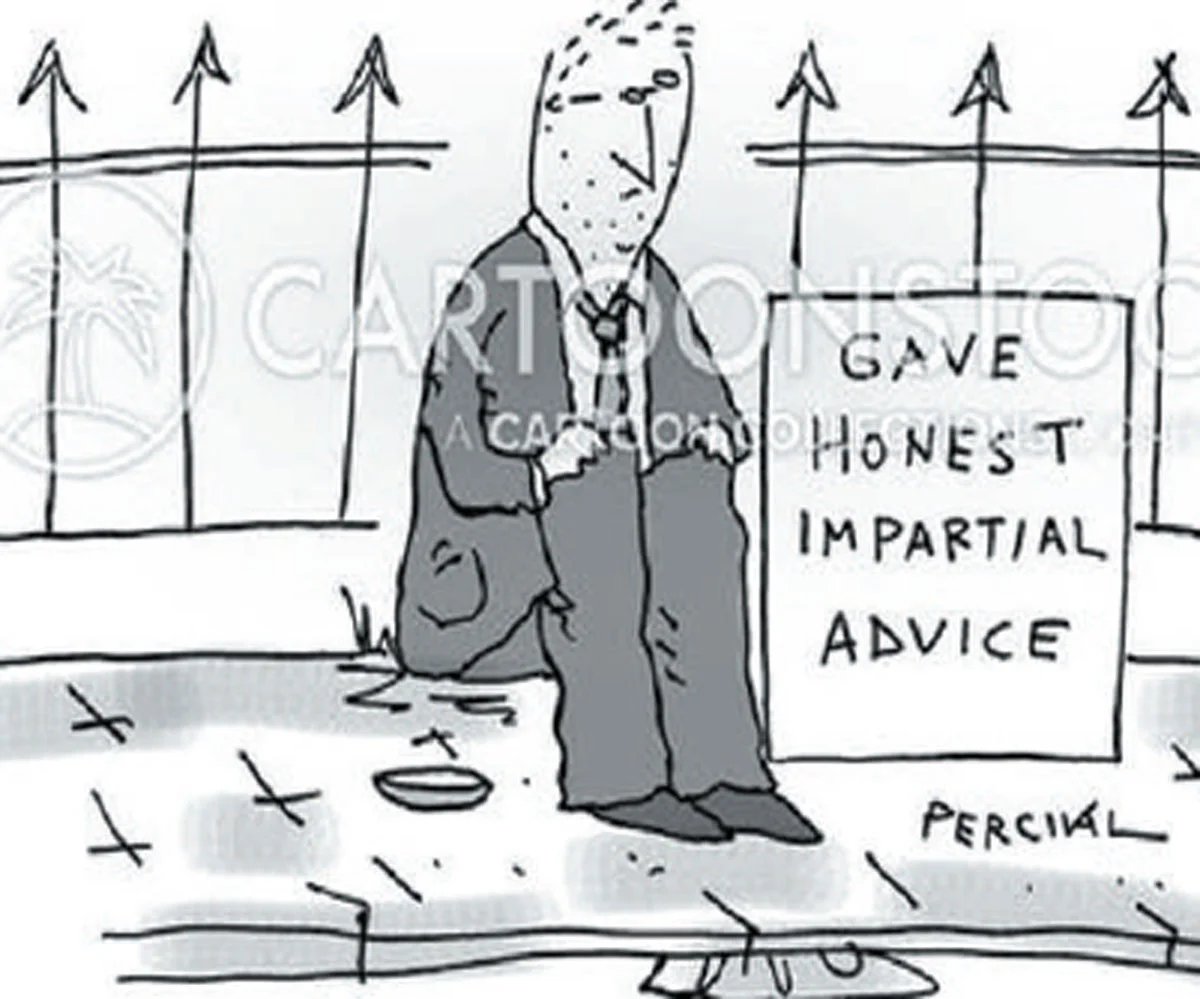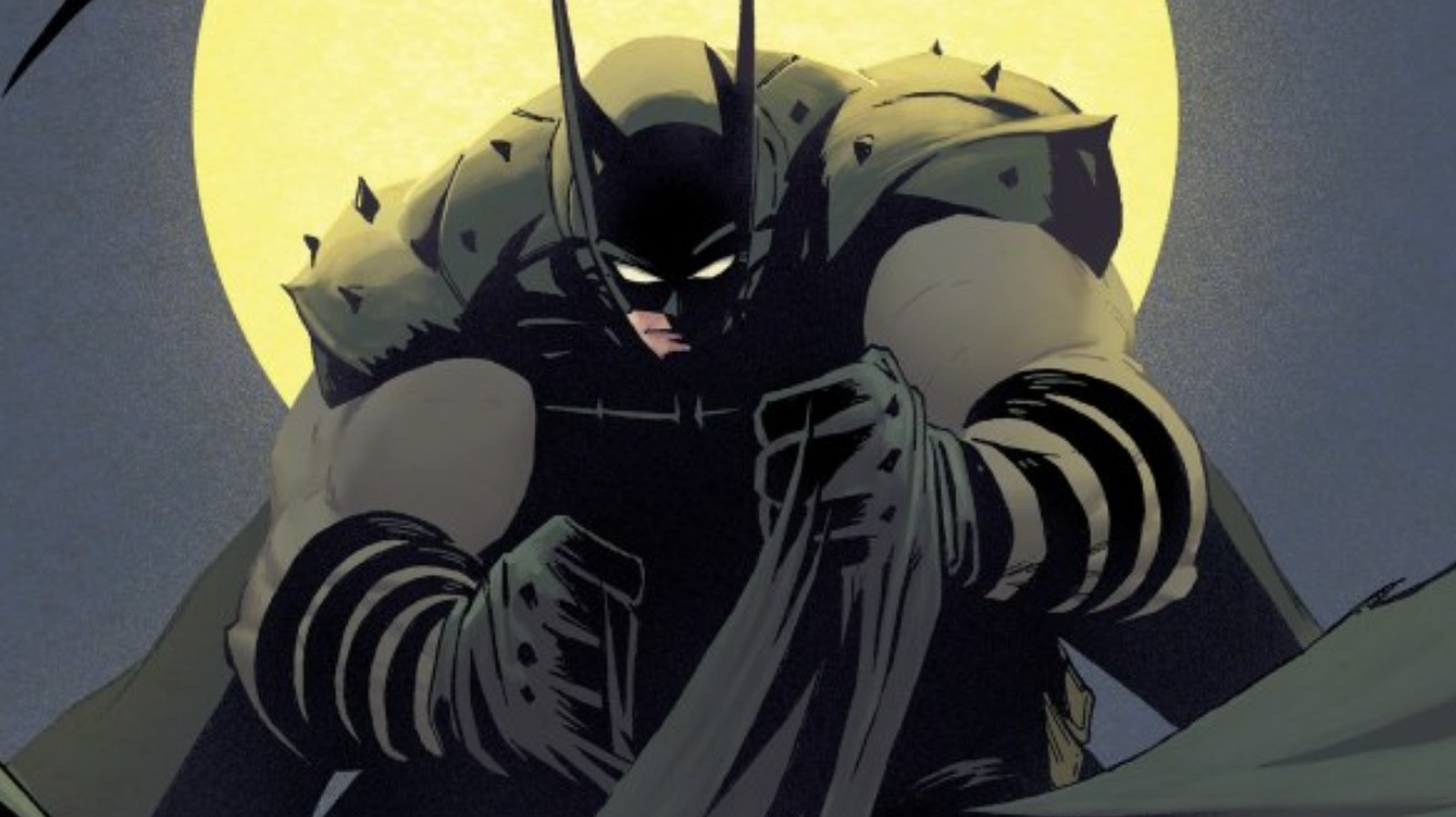Copyright ynetnews

738 long days after the October 7, 2023, massacre, Danielle Aloni entered a hospital room and embraced David Cunio, her sister Sharon’s partner, and his brother Ariel Cunio, hours after they were released from captivity in Gaza. The circle of the Aloni‑Cunio family, which was shattered that Saturday by the abduction of eight relatives from Kibbutz Nir Oz (including Danielle and her daughter Emilia), closed just two weeks and one day ago. Now she can finally breathe a little deeper, allow herself to look back and cautiously sum up what has happened since. “I saw kind, gentle David, and sweet Ariel. Physically, they are thin and weak but smiling,” she says in an interview with Ynet and its sister publication Yedioth Ahronoth. “I guess they have no idea that there is hardly a home in Israel that doesn’t know them, their stories and their families—but they will understand. Slowly. I hugged them fully and it was so emotional. Ariel told me he saw the video of me from Gaza, the filmed documentation. David whispered to me that he is so sorry that he left the safe room before us and wasn’t there to protect us, and all I could think was how sorry and how much it hurts me that it took us so long to rescue them.” Did that take you back to the early days at home after the deal in November 2023? “Yes. Those days were very confusing and strange. There was a huge emotional flood and a struggle to cover the gaps. After all, we didn’t know what had really happened in Israel on October 7. And the period after was also challenging, to say the least. Alongside recovery from the trauma, dealing with our anonymity being taken away was complex. We became everyone’s darlings, which is amazing, but that came with effects. It was not easy to leave the house, to deal with reactions from many people—shouting, crying, happiness. Emilia didn’t understand the amount of attention and love from all directions from people she didn’t know. People stroking her hair, running their hand on her cheek maybe it looked cute from the side but in the end this is a child. “Sometimes there were also questions like, ‘Did they do something to you? Did someone touch you?’ Or someone shouting from a distance – ‘Hey, you’re the hostage who was released,’ and everyone looks. It’s embarrassing and not always comfortable, and amid all that, the child needs to return to a kind of routine, a normal child reality. But I know it comes from a wonderful place of the beautiful people of Israel, and I so appreciate that support. So it was a crazy emotional flood, and it started right at the hospital. We learned from others who came, to limit the volume of visits and people and information that came our way—we couldn’t handle any of that at first. Alongside that, I must note the amazing support we received at Schneider Children’s Medical Center. Doctors, nurses, social workers stayed with us and were there for every need, every moment.” And right afterward, your sister Sharon and the twins were released. “Yes. That happened three days after I returned, and then I put myself forward. I didn’t really have time for myself. I volunteered by choice. It was the most important thing at that time and until the end of this fight. Since then and up to today, I operate within this life‑mission. I do it with love and care this is my family and I would do it again if I had to. Going from a state of being a hostage to being the family of a hostage who was released, alongside things that I undergo with my daughter in rehabilitation for both of us, makes everything more complex. Our lives cannot really go back to a normal track. I navigate between several worlds and each one of them is complex in itself.” This role, she says, has accompanied her her entire life. She is the eldest daughter, a “key child” who raised her younger siblings from the age of six. “I used to prepare food, pick up my brother from kindergarten, help after my sister’s birth who is ten and a half years younger than me,” she says. “Even in this surreal event, I am glad I had the mental resilience to take part in the struggle to bring back my family and the other hostages, and at the same time to provide the backing together with the rest of the family.” 'It hurts to think I may not have done enough' Two years of struggle have left Aloni with a sense of relief—but also with guilt, whether rational or not. “I look with admiration at people who moved to the square [where families of hostages demonstrated], who traveled abroad, who joined delegations and spoke around the world," she said. "I couldn’t do that. I’m a single mother with a small child I have to care for. I can’t leave for long stretches. Privately, it hurt me—to see others doing all that and getting recognition. The advocacy overseas had real value and significant weight in creating the public pressure that eventually led to the deal. It pains me to think maybe I didn’t do enough. I’m very self-critical, but I know I truly couldn’t. First, I had to return my daughter to a healthy routine—and that’s not a matter of one week. It’s an ongoing process of challenges and issues that arise every step of the way. “From my perspective, I’m ending this chapter with the sense that I did my best. I tell myself, ‘You’re okay. You did everything you could within your limits.’ I try to be honest with myself. Sure, I absolutely would have wanted to stand for three days in front of the prime minister’s residence with Einav Zangauker—who, in my opinion, deserves a medal of honor and heroism—but I can’t always do that, unfortunately. My efforts weren’t limited to the public sphere. I supported my sister and her daughters while she flew abroad, went to meetings or spoke at the square. After all, there are two girls here in a prolonged state of trauma, after what they’ve been through and their father’s long absence. There’s a huge amount of behind-the-scenes family support. Wow—what a time. The most challenging of our lives.” And now they’re here, and a new chapter begins. “Yes—and there’s a lot of catching up to do. I believe no one is the same person they were before October 7. This event changed our lives forever. But seeing photos of David putting the girls to bed, reading them a story, stroking their foreheads while they fall asleep beside him—that really allows us to breathe again. I always believed this moment would come. I could see it, imagine it, even through the hard road. I always held on to one sentence: never lose faith. No matter what. I said that to Sharon dozens of times. I knew it was just a matter of time. Sadly, it took far too long. “We’ve closed one chapter, after two painful and difficult years, and now a new journey begins—the journey of rehabilitation for the families and the children. They have a long road ahead, emotionally and physically, and they will go through it surrounded by the best medical professionals and their families. In my eyes, that is the key to the recovery of those who came back from this hell. We don’t even know yet what exactly they endured there—but the most important thing is that they know they are in good hands, in a safe harbor. Now that they’re reunited with their families, receiving hugs and love, it’s time to give them back control over their lives. If I came back a changed person after 49 days, people returning after two years certainly aren’t the same. Even the strongest person can be broken under such conditions. To me, they are heroes.” No privilege to stop Last Monday, in the early morning hours, we were still in Aloni’s living room. We had gathered to wait together for the moment when David, Ariel and 18 other released hostages would set foot on Israeli soil. Aloni sat on the couch, wrapped in an Israeli flag, moving back and forth between the kitchen and the balcony. She sat again in front of the screen, spoke with Sharon on the phone, and then repeated the cycle. She was tense and joyful, emotional and smiling. “This is a historic day for the people of Israel and for the Aloni-Cunio family,” she said at the time. “How lucky we are, how blessed. We made it to this moment, and all of us were saved, and that is anything but a given.” “We must make sure the state brings everyone back—every last hostage,” Aloni emphasizes. “We don’t have the privilege to stop. We must live up to the values we were raised on—values of responsibility and mutual obligation. If we don’t, we have no right to exist here. I hope that just as the people stood with us, they will not abandon the families of the fallen in these days, and will continue the same relentless and determined struggle. The fight isn’t over. The joy is overwhelming—but it isn’t the end. So many families are in pain now, because their loved ones were not saved, even though they could have been.” “I’m still dealing with deep disappointment in the leadership. I lack a sense of security, and I’m not sure it will ever return. I have no confidence that October 7 won’t happen again. That risk still exists, and we cannot rest on our laurels or think we’re invulnerable or unbeatable. It happened—factually. The state allowed so many people to remain in hell and die. That breach of trust still lingers, and without question, something fundamental has to change.” “People ask whether we were explicitly threatened to stay quiet. The truth is, it was done in a very sophisticated way—they made us understand that if we didn’t act as they wanted, there could be a price. It was enough to hear the prime minister say live on air: ‘The hostages’ families’ protests strengthen Hamas.’ After that, an all-out campaign against us began. It continued in the meeting between families and Sara Netanyahu, where she explicitly told them not to speak to the Israeli media because it strengthens [Hamas leader Yahya] Sinwar. And to complete the threat, there were those who insisted on ‘selection deals’—deciding who lives and who dies—and it was Israel that chose who would return and who wouldn’t. Families were terrified. That’s what paralyzed us—the fear that one comment or one post could cause a family member to be left behind.” “And in the same breath, I thank the IDF and the security forces, the soldiers who fought with bravery, those who sacrificed themselves for the state and the soldiers still serving on all fronts. I send a huge embrace to the returnees and their families, and to the families of the murdered and the wounded.” And what lies ahead for you? What are you planning? What do you dream about? “One of the insights I’ve had is that we can make plans, but the universe has plans of its own. I live day by day, and still, I have thoughts and desires. I’ve been reborn, no question. Today I can give myself over to things that truly interest me, to consider a career change—it’s still taking shape. The advocacy that began when I returned, as part of the struggle through the Hostages and Missing Families Forum, which remains a home for us, led to demand for me to speak at companies and organizations. I had never stood on stage or spoken in front of a crowd. I was always behind the scenes. I never imagined something like this could come from me—but it did, and it’s wonderful. It’s fulfilling, and more than anything, it’s important: to keep the issue present, not to normalize it, so that we never get used to it. Not until the last hostage returns.”



